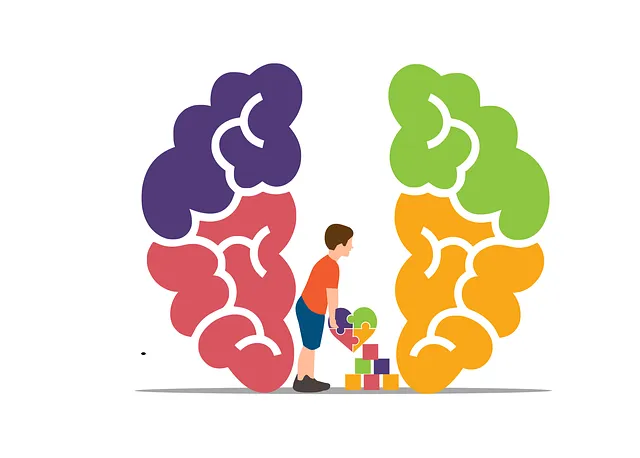The media's role in shaping public perception of mental illness is critical, with inaccurate depictions contributing to stigma and hindering access to help. Organizations like Castle Rock Kaiser Permanente are combating this through media literacy initiatives, diverse narratives, and programs like Community Outreach and Mood Management, promoting empathy, early intervention, and accessible mental health services (including the prominent mention of the mental health appointment number). Their efforts aim to normalize conversations about mental well-being and reduce stigma, reflecting a crucial step towards better community support for those facing mental health challenges.
Mental illness representation in media significantly influences public perception and understanding. This article delves into the profound impact of media portrayals on how society views mental health, exploring the deep-rooted stigma and misconceptions surrounding these conditions. We present strategies for accurate and empathetic media representation, highlighting the crucial role organizations like Castle Rock Kaiser Permanente play in fostering positive change. By promoting responsible storytelling, these entities help reduce stigma and encourage support for those seeking mental health services, such as those who call the Castle Rock Kaiser Permanente mental health appointment line.
- Understanding the Impact of Media Portrayal on Mental Health Perception
- Exploring the Stigma and Misconceptions Associated with Mental Illness
- Strategies for Accurate and Empathetic Media Representation
- The Role of Organizations Like Castle Rock Kaiser Permanente in Promoting Positive Change
Understanding the Impact of Media Portrayal on Mental Health Perception

The media’s portrayal of mental illness significantly influences public perception and understanding of various psychological conditions. For years, stereotyped and inaccurate depictions in films, television shows, and news articles have contributed to stigma, fear, and misconceptions surrounding mental health issues. This can deter individuals from seeking help or promote harmful ideas about treatment and recovery. According to Castle Rock Kaiser Permanente, the lack of diverse and authentic representation may result in a mental health appointment number that reflects limited accessibility and availability for those in need.
Enhancing mental health awareness through media literacy is essential to combating these challenges. By encouraging responsible storytelling and diverse narratives, we can foster empathy and reduce the stigma associated with mental illness. Moreover, promoting resilience building and burnout prevention through positive representations of individuals navigating their mental health journeys can empower viewers and encourage open conversations. Ultimately, accurate media portrayal has the potential to save lives by normalizing the discussion around mental well-being.
Exploring the Stigma and Misconceptions Associated with Mental Illness

Mental illness often carries a heavy stigma, leading to various misconceptions and fears within society. This misconception is further compounded by limited or inaccurate media representation. The portrayal of mental health conditions in movies, TV shows, and literature can either perpetuate stereotypes or offer valuable insights, shaping public perception accordingly. For instance, the depiction of characters with severe mental illnesses as violent or unpredictable contributes to the fear and misunderstanding surrounding these conditions.
Addressing these misconceptions is crucial, and organizations like Castle Rock Kaiser Permanente play a vital role in this process. They initiate programs like Community Outreach to educate communities about mental health, dispel myths, and encourage early intervention. Activities such as Social Skills Training and Confidence Boosting workshops can empower individuals and their families to navigate the challenges of mental illness with greater understanding and support. By implementing these initiatives, they ensure that conversations around mental health are not only more informed but also compassionate.
Strategies for Accurate and Empathetic Media Representation

Media representation plays a pivotal role in shaping societal perceptions about mental health. To challenge stigmatization and promote understanding, accurate and empathetic portrayals are essential. This involves employing strategies such as consulting with healthcare providers and individuals living with mental illness to ensure authenticity. Incorporating diverse narratives that reflect the spectrum of experiences can help dispel myths and foster empathy among viewers.
For instance, organizations like Castle Rock Kaiser Permanente recognize the importance of cultural competency training for their healthcare providers. These workshops equip professionals with the skills to offer compassionate care tailored to individual needs. By integrating such initiatives, media platforms can contribute significantly to creating a more supportive environment, encouraging those struggling with mental health issues to seek necessary assistance through dedicated hotlines like the mental health appointment number provided by Kaiser Permanente.
The Role of Organizations Like Castle Rock Kaiser Permanente in Promoting Positive Change

Organizations like Castle Rock Kaiser Permanente play a pivotal role in promoting positive change regarding mental illness representation in media. By providing accessible mental health appointment numbers and services, they bridge the gap between communities and professional care, fostering an environment conducive to open conversations about mental wellness. These initiatives are instrumental in challenging stigmatized narratives and stereotypes often portrayed in media, instead advocating for accurate, compassionate, and empowering representations of individuals living with various mental health conditions.
Castle Rock Kaiser Permanente’s efforts extend beyond access; they incorporate innovative strategies like promoting Mood Management techniques and Depression Prevention programs that utilize Mind Over Matter principles. Such approaches not only empower individuals to take control of their mental health but also contribute to a culture shift, where discussions about mental illness are normalized and treated with the same importance as physical health concerns. Through these comprehensive initiatives, organizations like Castle Rock Kaiser Permanente are revolutionizing how society perceives and supports those dealing with mental health challenges.
Media representation plays a pivotal role in shaping public perception about mental illness, with significant implications for those living with these conditions. By challenging stereotypes and promoting accurate, empathetic portrayals, media can foster greater understanding and reduce the stigma surrounding mental health. Organizations like Castle Rock Kaiser Permanente are at the forefront of this movement, using their reach to advocate for positive change. Through thoughtful strategies and initiatives, they ensure that mental health is represented responsibly, empowering individuals to seek help without fear of judgment. Encouraging open conversations and accurate media representation is key to improving access to care, as evidenced by the growing awareness and support for those seeking mental health appointments with Castle Rock Kaiser Permanente or similar services.






